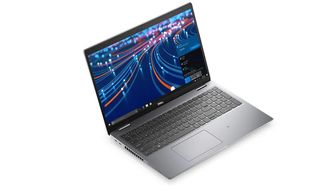Some Dell PCs and laptops reportedly fail to boot after BIOS update
Reports also suggest a way around this thorny problem

Some unlucky Dell PC owners have apparently run into trouble with a fresh BIOS update issued by the manufacturer which has caused some nasty boot failures in some reported cases.
Both desktop PCs and Dell laptops are affected, and that includes Dell’s Latitude 5320 and 5520 notebooks, plus the Inspiron 5680, along with the Alienware Aurora R8 gaming PC.
The problem rears its head after upgrading to BIOS version 1.14.3 with the Latitude portables, or v2.8.0 on the Inspiron, and v1.0.18 with the Aurora R8. So if you’re mulling that upgrade right now, iIt might be a good idea to hold off.
As Bleeping Computer makes clear, there are various reports of issues on Reddit and a bunch on Dell’s own community support forums, with complaints of boot failure – or getting trapped in boot loops – or being stuck at a black screen.
Another user on Dell.com reported problems with failing to wake up from sleep mode, with one reply on that thread stating: “I had this issue on my 5320 after updating to BIOS 1.14.3. With perseverance, the laptop would still turn on and boot into Windows (I did not take it apart for battery disconnect). But then the problem would start again as soon as the laptop went to sleep.”
Others have reported multiple laptops failing to boot, including the Reddit thread above, and this one from Dell’s support site: “About half of our Latitude 5520s no longer boot after having been updated from BIOS 1.12.2 to 1.14.3. System won’t turn on. Only life signs are the three white LED flashes after resetting RTS clock by pressing down the Power Button for 30ish seconds.”
Analysis: This sounds like a nasty one, but there is an apparent workaround
This looks to be a nasty problem, although how many users it affects, we don’t know – though the reports of multiple machines being hit from enterprise users are, of course, worrying.
Get daily insight, inspiration and deals in your inbox
Get the hottest deals available in your inbox plus news, reviews, opinion, analysis and more from the TechRadar team.
There is an apparent workaround as described on several of the above threads, namely here and here, which essentially involves removing and reconnecting the battery, booting and then downgrading to BIOS 1.13.0. We have not tried following this – we don’t own any of the potentially affected machines anyway – so obviously if you do give this a whirl, you do so at your own risk.
A safer option might be to wait for an official post from Dell on the matter, and hopefully that’ll be forthcoming soon – and maybe a revised BIOS. Assuming you can live without your hardware being operational in the meantime…
A moderator on Dell’s forum told one affected person: “We have received the required details. We will work towards a resolution. In the meantime, you may also receive assistance or suggestions from the community members.”
- Check out all the best gaming PCs
Darren is a freelancer writing news and features for TechRadar (and occasionally T3) across a broad range of computing topics including CPUs, GPUs, various other hardware, VPNs, antivirus and more. He has written about tech for the best part of three decades, and writes books in his spare time (his debut novel - 'I Know What You Did Last Supper' - was published by Hachette UK in 2013).
